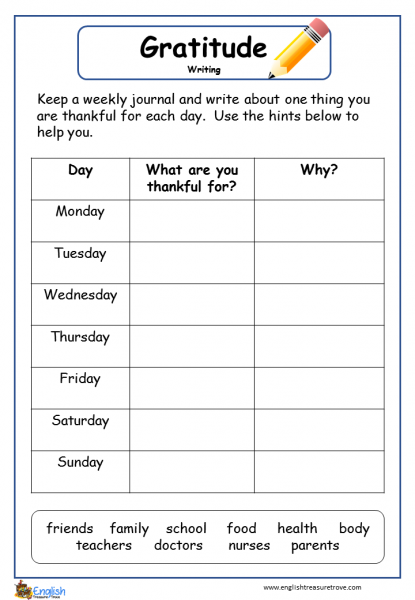It was used by a Neuro-Psychologist who was lecturing students on the topic.
Curious, I Googled it to discover the following definition, ‘the act of thoughtfully reflecting on the aspects of life that bring great joy causing feelings of gratefulness, rather than the insatiable longing of what’s just out of reach.’
Turns out I’ve been in therapy for years!
Without knowing it was a recognised medical practice I’ve been doing this, or at least trying, for a long time. While health professionals put together exercises for patients, some older people might simply think of it as ‘counting our blessings.’
What’s the use in wallowing in self-pity or cancerous resentment? Why mourn over what I can never have or may have lost? Is there not something today, big or small that I can celebrate? A healthier approach to life surely!
Now gratitude is much more than a feeling, it’s an attitude and a choice. I may not feel very happy or thankful today, I may actually feel quite anxious or even afraid about some things but I must try and give thanks anyway. Being in hospital can be stressful but it aids recovery. The rain postpones our walk on the beach but it waters the earth so we can enjoy our daily bread. Being alone can be tough going but we can find unexpected pleasure in the kindness of a stranger.
We can still look and find cause to say thank you. The doctors say it’s good for us psychologically but the writers of the Bible insist it can be more. It can actually be an expression of faith.
The Old Testament Psalmist enjoyed opportunities of coming together to worship: ‘Enter His gates with thanksgiving and His courts with praise; give thanks to Him and praise His name. For the Lord is good and His love endures for ever; His faithfulness continues through all generations.’
The Apostle Paul would apparently agree. He suffered misunderstanding, rejection and persecution for his preaching, plus a burden of concern for the churches he planted and pastored yet he writes we should ‘give thanks in all circumstances for this is God’s will for you in Christ Jesus.’ We might note he links this to being joyful and praying continually!
Of course Paul was following the example of Jesus, Who once gave thanks even though they only had five loaves, two fish and 5000 hungry people. We know how wonderfully that turned out!
But consider this: Jesus also gave thanks at the Last Supper, knowing full well the unspeakable suffering that He would face next day. He trusted that through and beyond the darkest day would come the light of salvation for the world.
I’m also thinking, giving thanks suggests that there is someone to thank.
I offer thanks to the One Who fed the 5000, Who feeds the world with seedtime and harvest every year. I will put trust in the One Who has got me this far and Who holds my present and future. I’m persuaded to rest in the generous care of the One Who sent His Son to be my Saviour and Friend. He has promised to return and make all things new with no more pain, sorrow or loss. What thanksgiving and praise we can anticipate on that day!
So, whatever our present challenges, I will choose defiantly to ‘trace the rainbow through the rain’.
Today I will give thanks.

 RSS Feed
RSS Feed